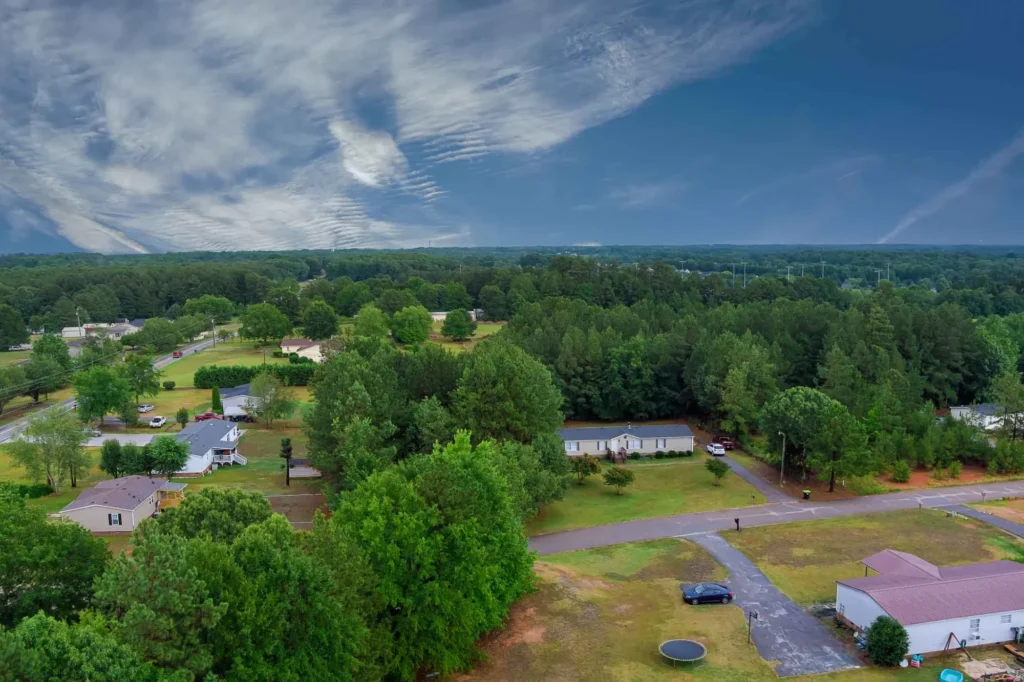
Get Rid of Millipedes in Your Berkeley County Home for Good
From river flats to pine woods, Berkeley County’s mix of stormwater ponds and shaded foundations keeps millipedes active nearly year-round. When soil stays damp after pop-up storms, they surge toward doors and slab edges.
We pair county-smart treatments with drainage tweaks and crawl-space improvements that stop the nightly crawl. All U Need Pest Control delivers quick relief and durable prevention at 1 (888) 239-BUGS.
Pest Control Services in Berkeley County, SC
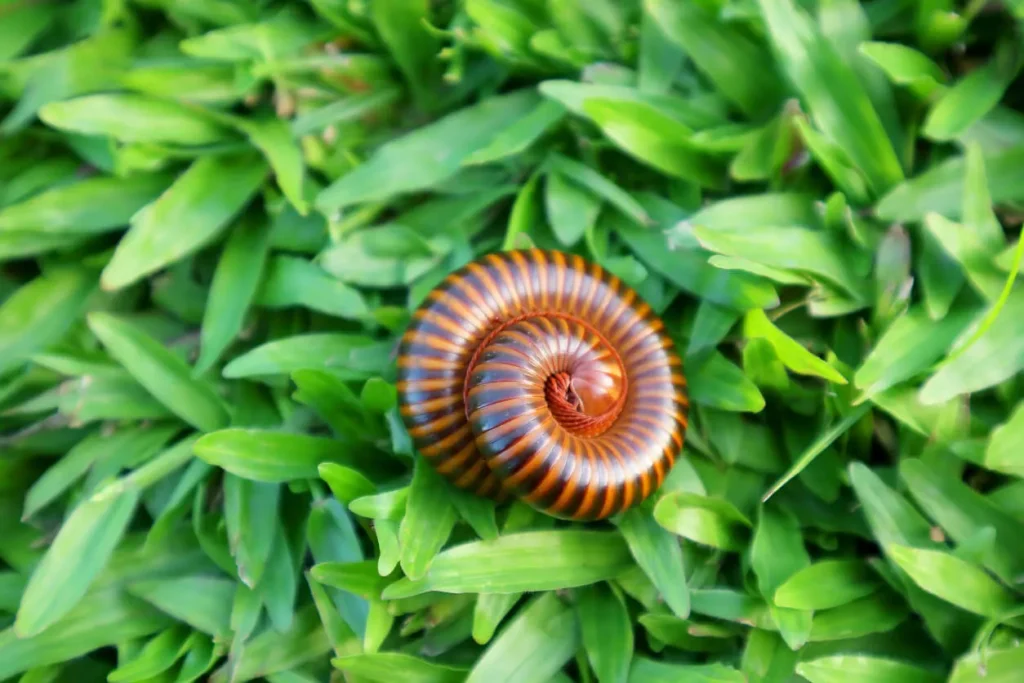
Millipede Control in Berkeley County, SC
Berkeley County, South Carolina, is a region known for its blend of historic charm, natural landscapes, and growing suburban communities. With sprawling wetlands, dense forests, and access to Lake Moultrie and the Cooper River, this area offers both natural beauty and unique challenges for homeowners. Among these challenges are pests such as millipedes, which thrive in the county’s humid subtropical climate. Long summers, frequent rainfall, and high humidity provide ideal conditions for millipede populations to flourish.
After periods of heavy rain, it is common to see millipedes crawling across porches, sidewalks, and even inside homes. While they do not bite or spread disease, their appearance in large numbers can be unsettling. They also leave behind stains and an unpleasant odor when crushed. The architecture in Berkeley County, which often includes crawl spaces, shaded porches, and extensive landscaping, provides plenty of hiding places and moisture-filled habitats for millipedes.
At All U Need Pest Control, we understand the specific environmental factors that make Berkeley County a hotspot for millipede infestations. Our customized treatments are designed to address these conditions, giving homeowners lasting relief and peace of mind.
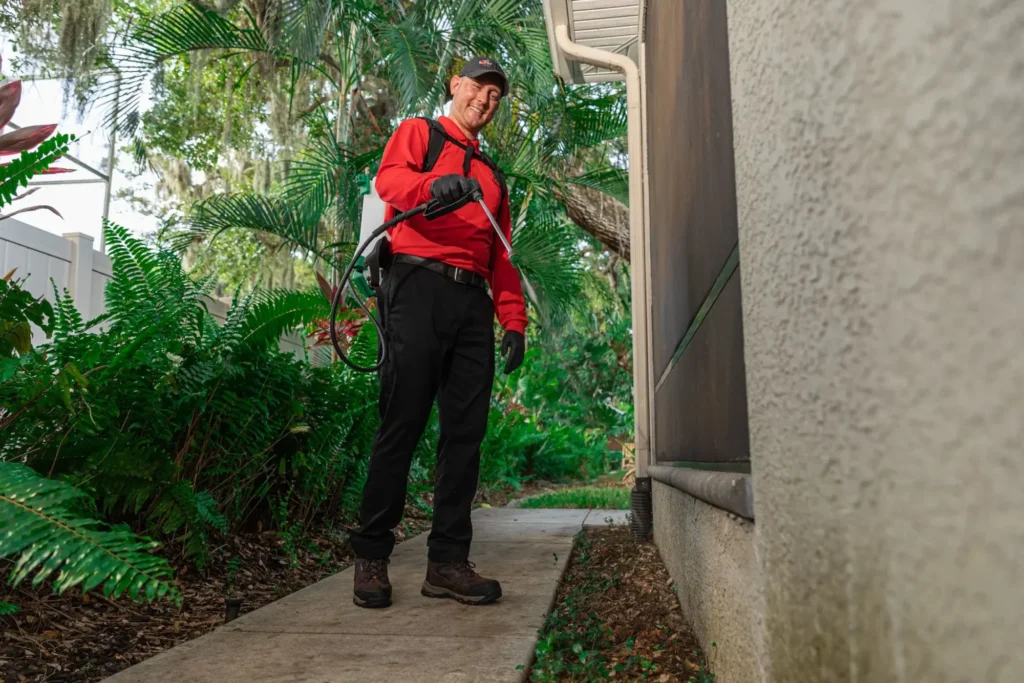
How to Get Rid of Millipedes in Berkeley County, SC
Millipedes cannot be permanently controlled with quick fixes like sweeping them away or waiting for them to disappear. They feed on organic material such as leaves, mulch, and decaying vegetation, and when the soil becomes saturated, they migrate to drier spaces, often inside homes. Without addressing these underlying conditions, millipede problems will continue.
Here’s a Berkeley County-specific plan for tackling millipedes:
Correct the moisture. Extend gutters and downspouts to carry rainwater away from the foundation. Homes with crawl spaces benefit from dehumidifiers or encapsulation systems to reduce interior humidity.
Modify the habitat. Rake up leaves and pine needles after storms, reduce mulch depth, and trim landscaping near the home to improve airflow and reduce damp soil.
Seal entry points. Install new door sweeps, caulk cracks in siding and foundations, and secure crawl-space vents. Cover weep holes with breathable guards.
Targeted treatments. Apply professional pest control products around porches, crawl-space entryways, garage thresholds, and foundation perimeters.
Maintain. Seasonal inspections and treatments help keep millipedes under control year-round in Berkeley County’s humid environment.
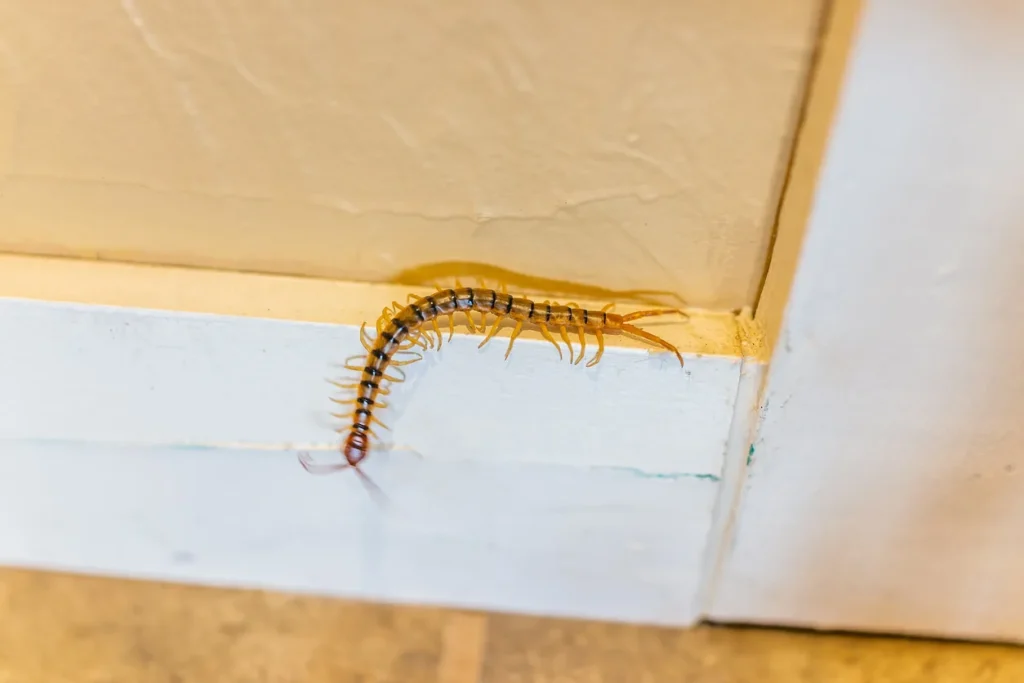
Millipede Treatment in Berkeley County, SC
At All U Need Pest Control, we design treatment programs that go beyond temporary fixes. By addressing both the immediate infestation and the conditions that support millipedes, we provide long-term protection for Berkeley County homeowners.
- The type and density of landscaping, which determines how much shade and moisture is retained around the foundation.
- The depth and type of mulch or pine straw near the home.
- Yard drainage and irrigation systems that may create persistently damp soil.
- Proximity to natural habitats such as forests, wetlands, and lakes, which are common throughout Berkeley County.
We also refine our treatment approach by evaluating:
- The areas where millipedes are most active, such as shaded porches or garden edges.
- Seasonal factors like humidity spikes and heavy rainfall patterns that influence infestations.
This targeted strategy ensures that treatments are tailored to the unique environment of Berkeley County.
Comprehensive Inspection/Consultation
Our process begins with a thorough inspection of your home and property. We check for crawl-space humidity levels, mulch and landscaping conditions, and drainage issues. Many Berkeley County homes, particularly those near wetlands or wooded areas, require customized solutions like crawl-space sealing or adjustments to irrigation practices. After the inspection, we provide a clear action plan tailored to your home.
Treatment
Our treatments are applied to areas where millipedes are most commonly found, including foundation edges, porches, garage thresholds, and crawl-space entry points. Because Berkeley County experiences frequent rain, we use products that are designed to remain effective even in wet conditions. This ensures fast results and reduces the risk of reinfestation.
Ongoing Maintenance
Millipede problems often recur due to Berkeley County’s consistently humid climate. Our ongoing maintenance programs include seasonal treatments, inspections, and adjustments to keep infestations from returning. By staying proactive, homeowners can maintain pest-free living year-round.
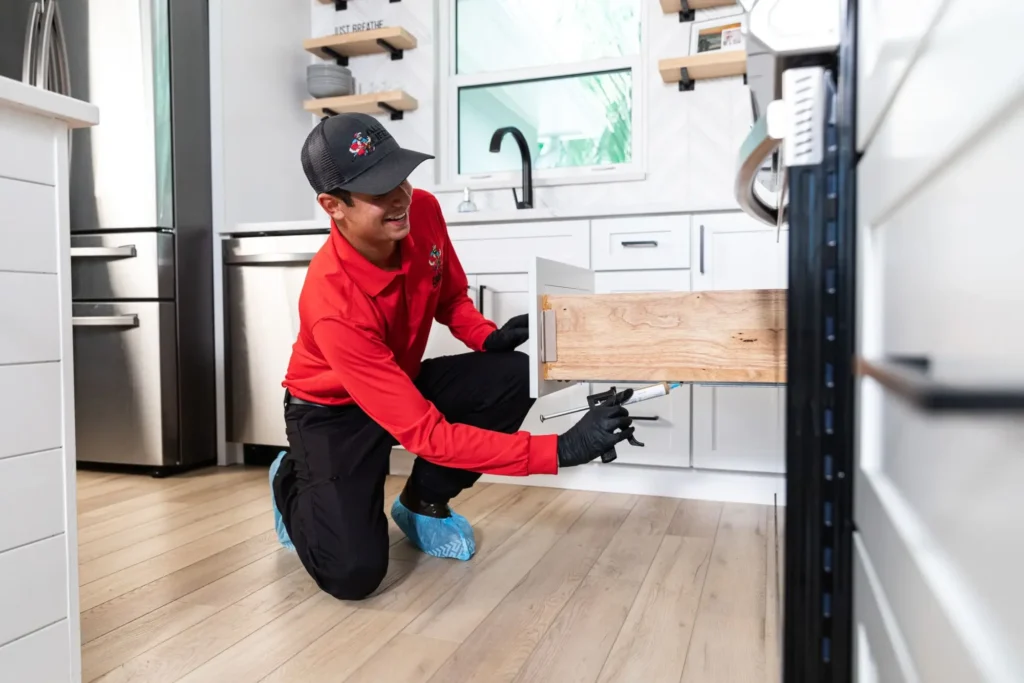
Signs of a Millipede Infestation in Berkeley County, SC
Sightings in Damp Areas
Millipedes are most often found in damp locations. Outdoors, they live under mulch, pine straw, and shaded soil. Indoors, they may appear in bathrooms, basements, and crawl spaces. Their activity usually peaks after storms, when the ground is saturated and they seek drier shelter.
Damage to Plants
Although millipedes primarily feed on decaying organic material, they occasionally nibble on seedlings and delicate plants. For Berkeley County homeowners with vegetable gardens or ornamental landscaping, this can become a nuisance. Keeping garden areas clean and free of excess debris can help minimize this damage.
Dead Millipedes
Inside homes, millipedes typically die quickly due to the dry indoor environment. If you find curled, dried bodies along baseboards, thresholds, or in garages, it’s a sign that outdoor moisture is pushing them inside. Fixing these exterior conditions will prevent infestations from continuing.
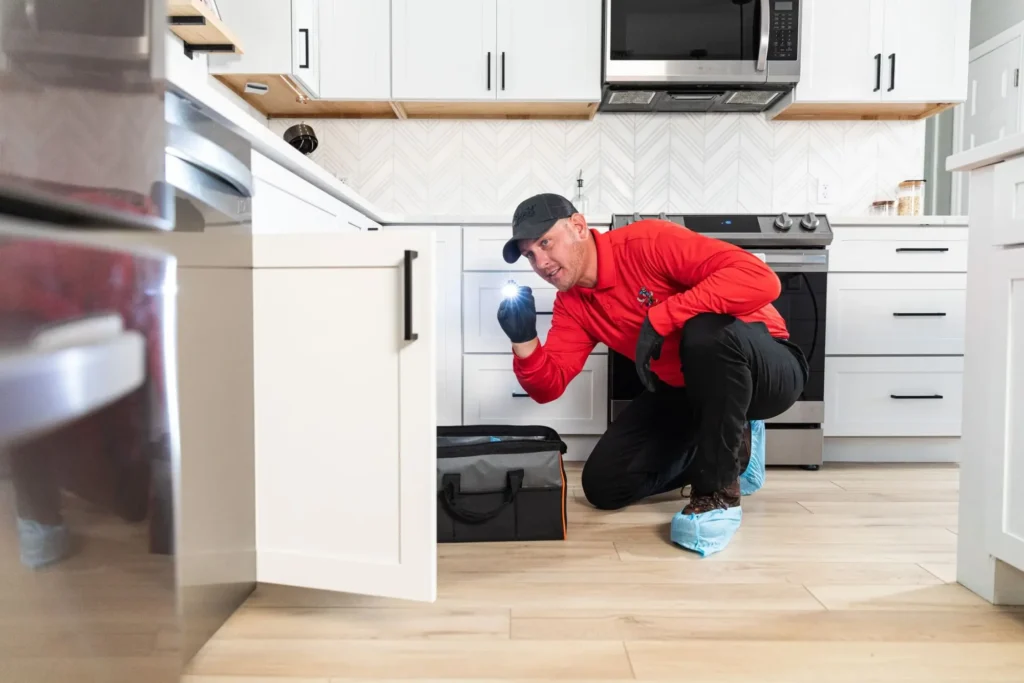
How to Check for Millipedes in Your Berkeley County Home
If you suspect millipede activity, check the following common areas:
- Crawl spaces, bathrooms, basements, and garages where moisture is high.
- Entry points such as door thresholds, utility openings, or uncovered weep holes.
- Mulch beds, pine straw, or leaf piles against the home’s foundation.
- Yard low spots, patios, and downspout discharge zones that hold water.
If you cannot identify the source, a professional inspection can uncover hidden vulnerabilities contributing to infestations.
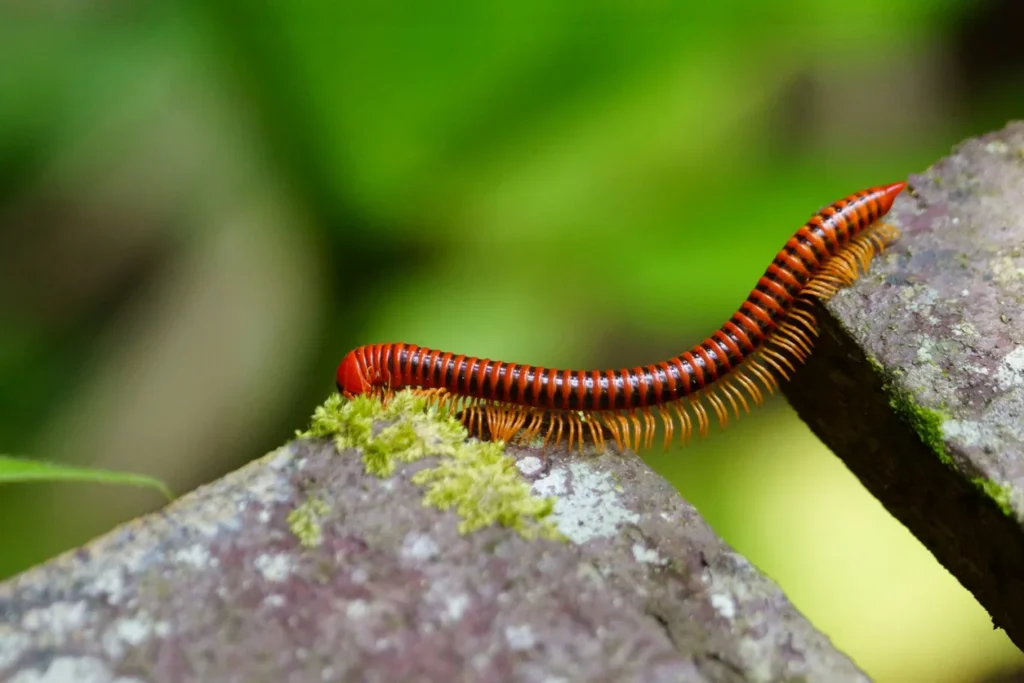
What Do Millipedes Look Like?
Millipedes are elongated arthropods with cylindrical bodies divided into many segments, each carrying two pairs of legs. In Berkeley County, they are most often dark brown or black, blending easily into mulch and soil. Unlike centipedes, which move quickly and are predators, millipedes are slow-moving and coil into a ball when disturbed.
Key features include:
- Cylindrical, dark-colored bodies that blend into organic matter.
- Numerous segments, each with two pairs of legs.
- Short antennae used to navigate damp and shaded environments.
Because millipedes can survive for years in damp soil, reducing moisture and organic debris around the home is the most effective way to manage infestations.
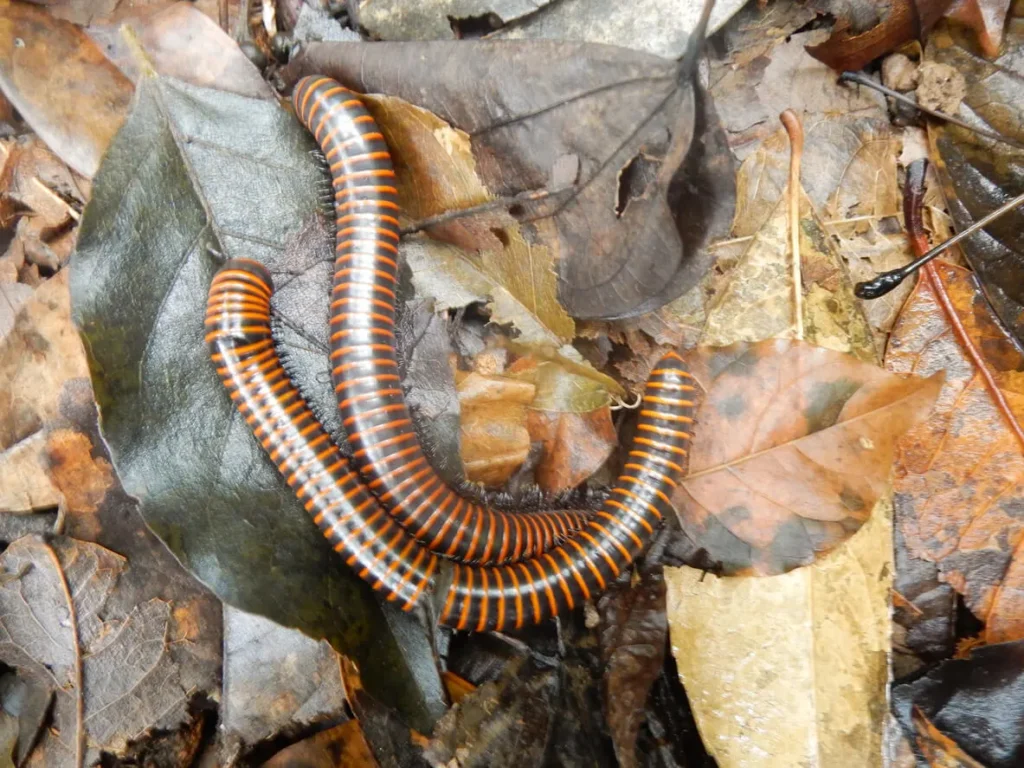
Eco-Friendly Solutions
At All U Need Pest Control, we recognize that Berkeley County is home to some of South Carolina’s most beautiful natural resources, from Lake Moultrie to the Francis Marion National Forest. Protecting the environment while solving pest problems is a top priority for many residents. That is why our treatments are designed to eliminate infestations without harming the ecosystems that make this region so special.
Minimum-Risk Pesticides
When it becomes necessary to use pesticide treatments, we rely on minimum-risk products. These are effective at controlling millipedes while being safe for people, pets, and non-target wildlife. Applications are carefully placed in areas of activity such as porches, crawl-space entryways, and along foundation walls. This precise targeting ensures the safety of surrounding natural areas, which is particularly important in Berkeley County communities that border wetlands or forests.
Eco-Friendly Solutions
We also encourage eco-friendly adjustments that homeowners can make themselves to reduce pest activity. Replacing thick mulch with gravel near the foundation, trimming hedges to increase airflow, and scheduling irrigation to avoid overwatering are all sustainable methods. Installing crawl-space dehumidifiers is another environmentally friendly option that prevents moisture buildup while making homes less inviting to millipedes. These measures align with Berkeley County residents’ desire to live in harmony with their natural surroundings.
IPM Practices
Our services are built on Integrated Pest Management (IPM), which emphasizes long-term solutions over temporary fixes. In Berkeley County, IPM means inspecting properties carefully, identifying the conditions that support millipede populations, and correcting those issues before applying treatments. By reducing dependence on chemicals and focusing on prevention, we provide safe and reliable pest control that suits the county’s unique environment.
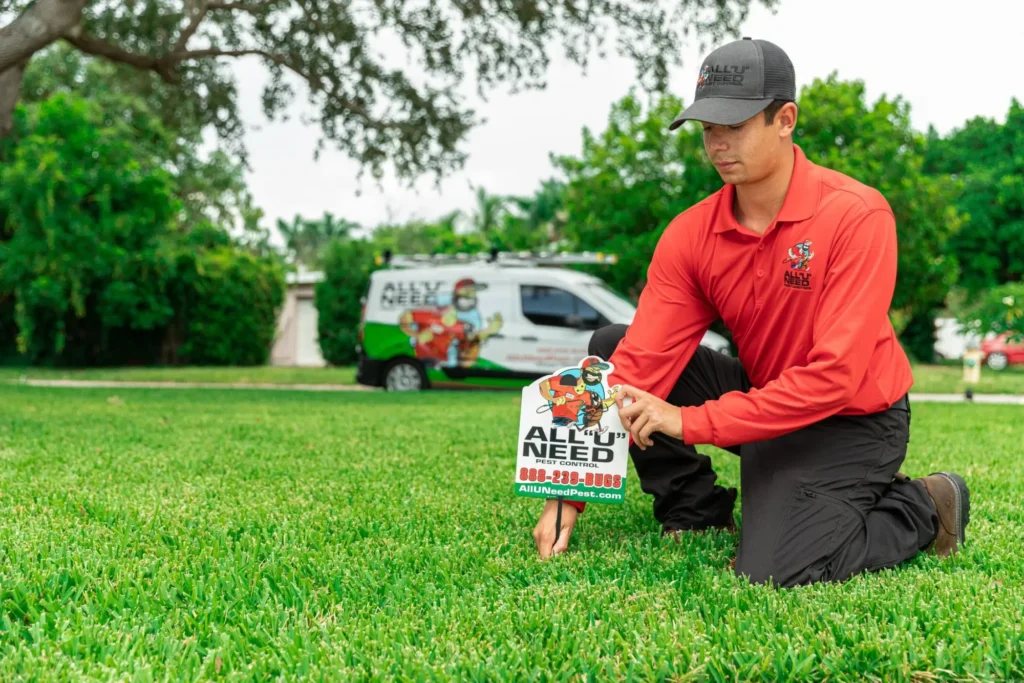
How to Prevent Millipedes in Berkeley County, SC
Because Berkeley County experiences hot, humid summers and frequent rain, prevention plays an essential role in controlling millipede populations. Homeowners can take simple steps to make their properties less appealing to these pests.
Reduce Moisture Levels
Moisture control is the foundation of prevention. Indoors, use dehumidifiers in crawl spaces, bathrooms, and basements. Ventilate kitchens and laundry rooms with fans that exhaust outdoors. Outdoors, extend gutters and downspouts at least several feet away from the foundation and use splash blocks to prevent pooling. With Berkeley County’s high rainfall and stormy summers, these actions are critical for keeping soil dry.
Seal Entry Points
Even if millipedes are active outside, they will not become an indoor problem if entry points are sealed. Replace worn door sweeps, caulk foundation cracks, and secure crawl-space vents and doors. Install breathable covers over weep holes to block pests while maintaining airflow. Homes throughout Berkeley County, from older historic properties to newer suburban builds, can benefit from these simple upgrades.
Remove Organic Debris
Since millipedes feed on decaying vegetation, it’s important to reduce organic matter near your home. Rake up fallen leaves, thin mulch layers, and avoid stacking pine straw directly against the foundation. Compost piles should be located away from the house and managed properly to avoid attracting pests. In Berkeley County, where large yards and wooded surroundings are common, these measures make a significant difference.
Change Your Landscaping
Landscaping design strongly influences millipede activity. Creating a gravel or stone border near your foundation dries the soil and deters pests. Trimming back trees and shrubs increases sunlight and airflow, helping to dry shaded areas. Choosing native plants that require less irrigation also reduces moisture levels. These strategies not only minimize pest problems but also add beauty to Berkeley County landscapes.
Keep Your Home Clean
Both indoors and outdoors, keeping spaces clean reduces millipede opportunities. Outdoors, store firewood, soil bags, and tools off the ground. Indoors, repair leaks quickly and eliminate condensation in bathrooms and kitchens. A tidy, dry environment gives millipedes fewer places to hide and helps keep infestations under control.
Work With a Pest Control Expert
The best way to ensure lasting protection is by working with professionals who understand local conditions. At All U Need Pest Control, our Berkeley County services include:
- Inspecting and sealing crawl-space doors, thresholds, and utility openings.
- Applying treatments at the right time of year to match Berkeley County’s rainfall and humidity patterns.
- Offering customized prevention strategies, such as drainage improvements and eco-friendly landscaping tips.
Location Contact:
419 N Cedar St Summerville, SC 29483
Get Directions for 419 N Cedar StSummerville, SC 29483 on Google Maps843-489-8818
Call All "U" Need Pest Control